Broody hen vs. Incubator? Which is better, and why?
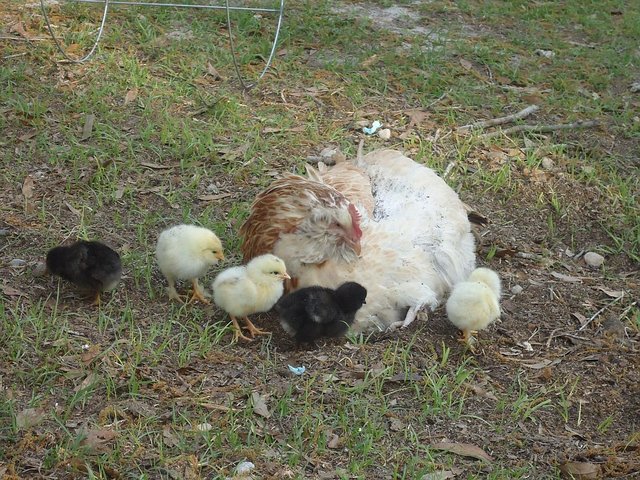
So, you want to raise up some chicks, maybe to replace old hens, maybe to increase your flock.
What is the best way to accomplish this?
Well, I am, by no means, an expert, but here are some thoughts I have about the subject. Take them for what they're worth.
I have an incubator. I also have hens who are good at raising chicks.
I actually enjoy using both methods, but there are pros and cons to each.
Lets start with incubating.
Having an incubator is sort of like printing your own money. You insert eggs, you receive chicks! Pretty amazing, right?!
Well, it is, especially if you have a good, quality, incubator. If you buy the cheapest one you can find at your local farm store, you wont have as good of luck. It can be hard to maintain humidity, which can lead to development and hatching issues. Sometimes the thermostat can stick and you can end up with cooked eggs accidentally! These kinds of issues can be heartbreaking. I was planning on buying one of these cheap incubators before I knew better, but lucky for me, my husband said, go ahead, invest in a good one, so we can use it for years to come. I bought a Brinsea, and I am so glad I did. Its a 'set it and forget it' kind of thing. Never had an issue with mine. (No, I am not being paid to say this, haha)
Anyway, with a good incubator, it's easy and fun.
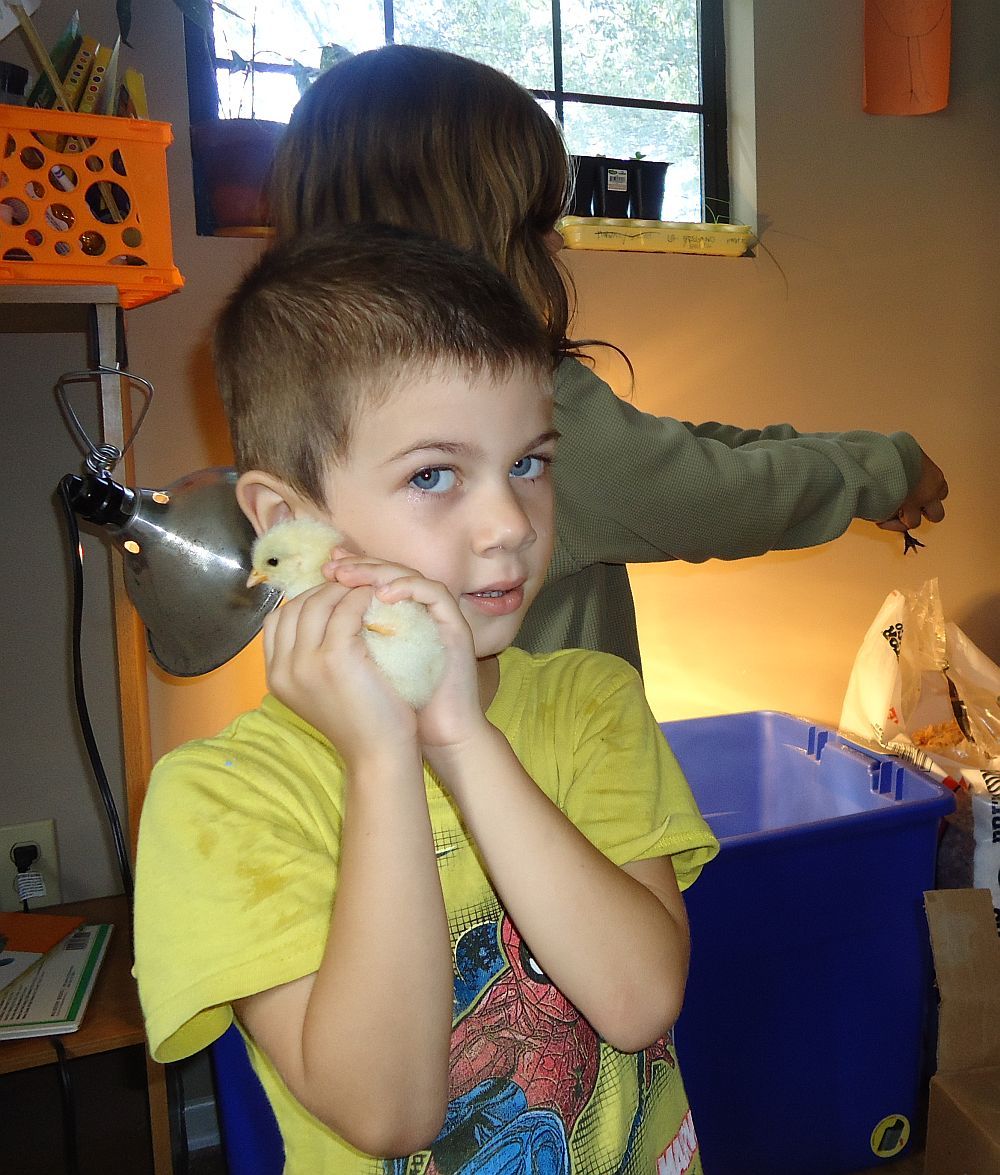
BUT
Then you have a batch of baby chicks to raise up to adulthood, and after that, you must integrate them into your flock.
This can be a tricky endeavor in and of itself.
The baby chicks must be kept warm. They must have clean food and water, and let me tell you, their entire mission in early life is to make a royal mess out of their food and water. You have to teach them to drink! You have to watch them for fun things like pasty butt.
(Yes, this is an actual thing.)
People generally keep them in the house in a tub for the first week or so, to keep a good, close eye on them. They are noisy, they are dusty, they start to stink as they outgrow their tub. You have to make a brooder pen for them outside. And finally, when they are big enough to not need a heat lamp, you have to introduce them to the flock. This can be easy, but usually it ends up with lots of bickering and picking on until the old hens get used to the new birds.
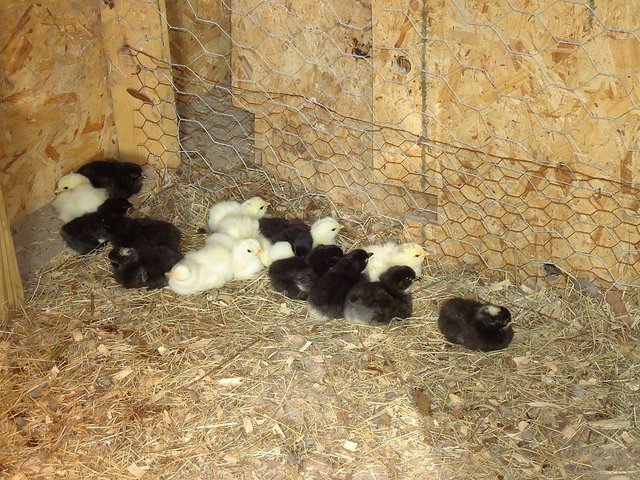
So.... the hatching of the eggs is easy, you can choose exactly when and how many to hatch, but after the chicks are there, its kind of a hassle. It can be worthwhile, mind you, but still, kind of a hassle.
Moving on to broody hens.
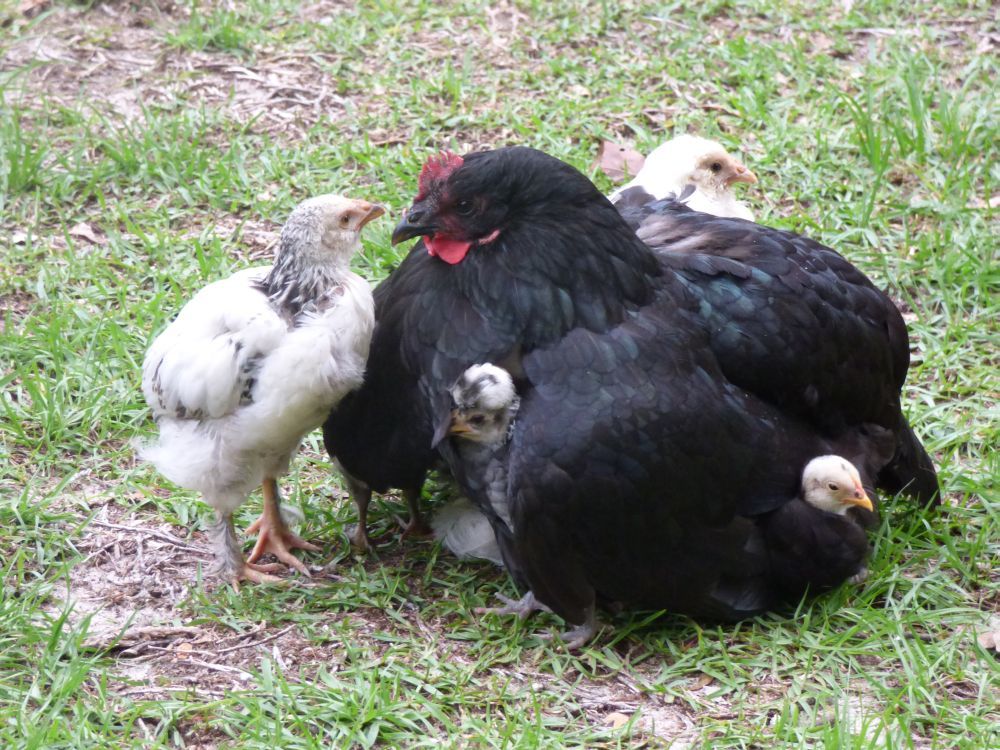
The main problem with broody hens is you can't control when they go broody! There really isn't anything you can do to make them decide to hatch eggs. They either will or they won't. You can get breeds of chicken that do it more often than others, but that's about it.
That being said, broody hens are by far my favorite way to hatch eggs! When you get one that is ready to sit, you just stick whatever eggs you want hatched under her, and she takes care of the rest. No monitoring temps, no watching humidity, no egg turning, nada. She does all this, and when the eggs hatch, she takes care of them!! She keeps them warm enough, she teaches them to eat and drink and scratch for food. AND if you do not remove her from the flock, the chicks are already naturally integrated! No worries there! The hen will protect them from any grouchy flock members who would pick on them.
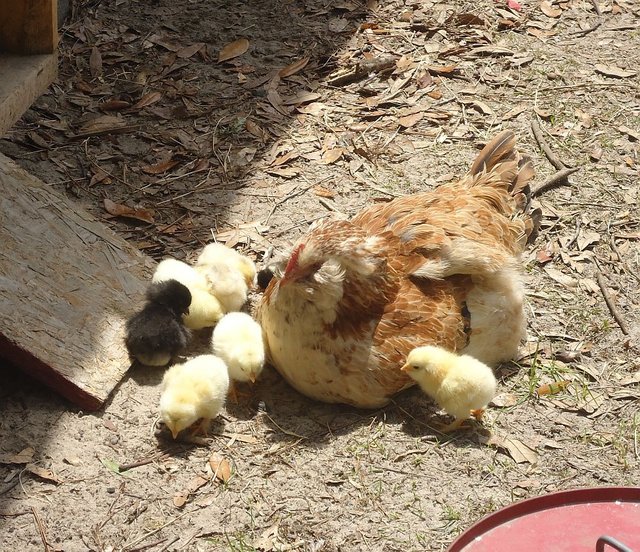
Pretty fantastic, right?!
AND sometimes you will get hens that will work together to raise their babies! I have a few who will do this; they team up and work together to take care of the babies, and it is pretty amazing.
There are some cons, of course. Like I said, you can't tell a hen to go broody, she decides this on her terms.
If you leave her in the chicken house, there is the risk of egg breakage. Other hens will squeeze in with her to lay eggs. (You have to mark her eggs and remove the rest or you will have a growing pile that will all start developing at different times.) Generally they are careful, but occasionally you get a clumsy hen, or they bicker, and an egg or two gets broken. Which is sad, especially when they are close to hatching. Sometimes multiple hens will go broody together and then try to steal eachother's chicks.
And sometimes you just get a hen that is not a good mother. She either won't stay on the nest long enough, or maybe she just stinks at keeping her peeps together and warm, and leaves them behind. First time moms are usually the culprits, but sometimes you get hens that just never learn to be a good mother.
Well, as you can tell, both methods are great for hatching chicks. Both methods have their high points and low.
I don't think either way is better than the other, it just depends on your situation and what works best for you and your flock.
Hopefully you enjoyed reading and maybe even learned something!
Have a blessed day, fellow Steemians!
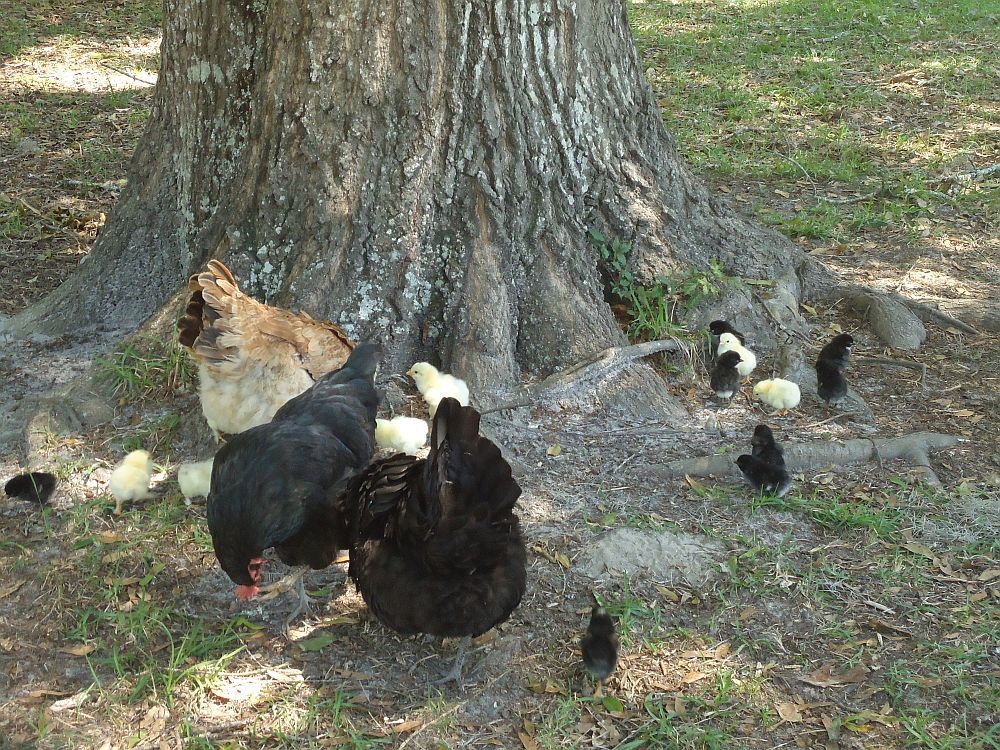
Thanks for posting this. I was going to be researching this soon. We have a few buff orpingtons that are very broody. Mean broody. I had been thinking about using an incubator for better outcomes.
Thanks, glad you found it helpful!
The buff orps generally make great mothers. Those, along with black australorps and salmon faverolles have been the most reliable mothers around here. You know, something else you can do is to put some eggs under her, maybe only a few if you are worried about her hatching ability, and at the same time put eggs into the incubator. Then, when the chicks hatch, just go out at night and stick the incubator chicks under her and she will care for them all. Ive done this a few times...
Mean broody is generally a good thing. She has the correct instinct to protect her eggs and babies, so you might want to give her a shot.
Good luck though, and hoping you post pictures of baby chicks whenever you do hatch some! :D
That's a good idea. Right now we only have 1 rooster but about 35 hens. So there is a small chance the eggs they lay on are fertilized. That will change in the spring hopefully. We will get the new pens built and add a few more roosters, then maybe the fertilization rate will be higher. I usually just let her sit on them so she maintains that instinct even though I know none of them will probably hatch.
Makes sense!
Thanks! :)